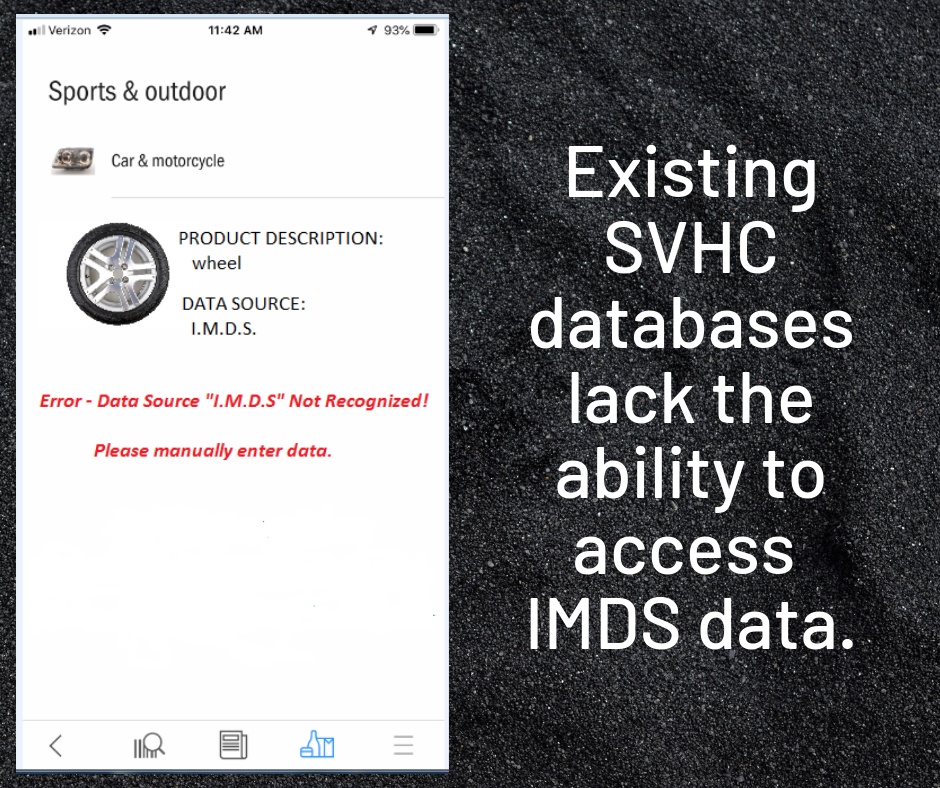Long before the revised Waste Framework Directive (WFD) database was being developed, the automotive industry had generated tens of millions of datasheets reporting on material chemical composition, via the International Material Reporting Database (IMDS). Over the past two decades, automotive companies have invested substantial resources into IMDS reporting.
While IMDS was created primarily for addressing the requirements of the EU’s End of Life Vehicles (ELV) Directive, it continues to add features for facilitating compliance with other global regulations which require material content data.
Now with the WFD database scheduled for user testing in early 2020, questions remain: Will automotive manufacturers be required to manually input data into the WFD database despite much of that data being already available in IMDS? Will the WFD inadvertently contribute to a waste of resources and squander the opportunity to capture useful material content data?
Time Is Running Out on Efforts to Prevent This Waste in the Waste Framework Directive
One major benefit of having many millions of datasheets stored electronically is that they are virtually “on-tap” for electronic transfer if a convenient format for transfer can be established. Indeed, that is exactly what many automotive OEMs and Tier 1’s do every day, as they have invested in technology for uploading and downloading data between IMDS and other software applications.
Important Waste Framework Directive dates you need to know!
In an ideal scenario, any future major regulatory databases would allow convenient electronic import of the vast amount of material content data residing in IMDS. However, with 2020 now six months away, there is very little certainty about what, if any, electronic data transfer mechanisms will be available for the industry.
In fact, as matters currently stand, automotive manufacturers would have to manually re-enter much of the data that they have worked so hard to collect. Automotive stakeholders, both within the EU, and also globally, have been commenting and advising on measures that the EU could take to enable the mountain of data to be used, rather than tossed aside.

But they are working against the clock and fighting an uphill battle. If they are successful, they may prevent this still-avoidable outcome. If they are not, we may witness the irony of a waste regulation contributing to a wasted opportunity.
More on how the Waste Framework Directive will affect your automotive company!
Take Action for the Waste Framework Directive Now to Protect Yourself
While much of the ongoing effort to facilitate transfer of existing data is now outside of your control, there are actions you can take now to preserve your ability to use your IMDS data to support the new Waste Framework Directive database requirements. Tetra Tech can assist you in understanding what those actions are and can help you with any of the steps with which you may require assistance. Please contact us if you have any questions; we would be happy to walk through any of your concerns with you.






